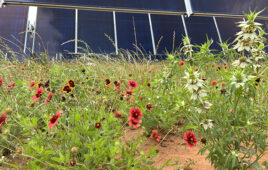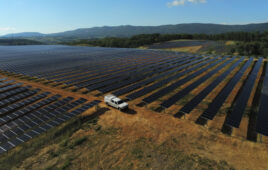By Tanya M. Larrabee and Amy L. Hahn, Sherin and Lodgen
COVID-19 is impacting industries across the globe and clean energy is no exception. As the pandemic continues to influence economic relief efforts at both the state and federal level, states are beginning to offer specific forms of relief through their incentive programs. Additionally, electric distribution companies in each state have declared COVID-19 a force majeure event, allowing extensions to interconnection milestones and in some cases payment schedules. Below are summaries of the specific relief efforts being offered by some states, and more details regarding electric distribution companies’ declaration of a force majeure event.
Massachusetts
The Massachusetts Department of Energy Resources (DOER) filed emergency regulations with the Secretary of State following its regulatory 400-MW review of the Solar Massachusetts Renewable Target (SMART) Program on April 14, 2020. Among the regulations is a blanket extension of six months to all solar tariff generation units, including any projects that submit their applications before July 1, 2020, due to the ongoing impacts of COVID-19. More details are provided in the DOER’s Statement of Qualification Guideline.
The Massachusetts Department of Public Utilities has also developed a webpage with information and resources specific to COVID-19. The website includes information on the impacts of the electric distribution companies’ respective declarations of COVID-19 as a force majeure event.
New York
The New York State Energy and Environment agencies wrote a letter to the clean energy industry on April 1, 2020, expressing support for the clean energy industry, particularly as construction has been impacted by COVID-19. The agencies announced in the letter that they are seeking input from clean energy industry stakeholders so that the agencies and the industry can work together to form creative solutions. The letter is found on NYSERDA’s COVID-19 page.
Connecticut
In Connecticut, the Department of Energy and Environmental Protection (DEEP) is coordinating with governmental offices and stakeholders to offer webinars for clean energy contractors with information about available state and federal aid. Please check in with CT DEEP to find out more information on these offerings.
Maine
The Governor’s Energy Office (GEO) released a statement that it is working with the Maine Public Utilities Commission (PUC) and clean energy stakeholders to answer questions and concerns related to COVID-19. Stakeholders with questions and concerns should contact the GEO for further information.
Electric distribution companies’ force majeure declaration
Several electric distribution companies have notified state’s public utilities commissions that COVID-19 is a force majeure event. By declaring a force majeure event, the electric distribution companies have allowed extensions to project milestone dates and in some cases interconnection payments. Electric distribution companies that have not formally declared COVID-19 a force majeure event have waived late fees and extended payment timelines. Individual projects should check in with the electric distribution company specific to the project to confirm how theirs may be impacted.
Tanya M. Larrabee is an associate at Boston law firm Sherin and Lodgen. She represents renewable energy clients in the acquisition, development and financing of solar, wind and energy storage projects, including advising on state incentive programs.
Amy L. Hahn is a law clerk at Sherin and Lodgen.




Tell Us What You Think!